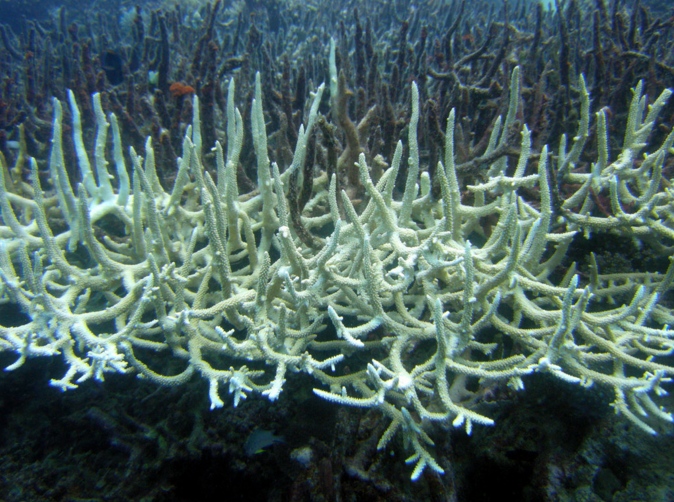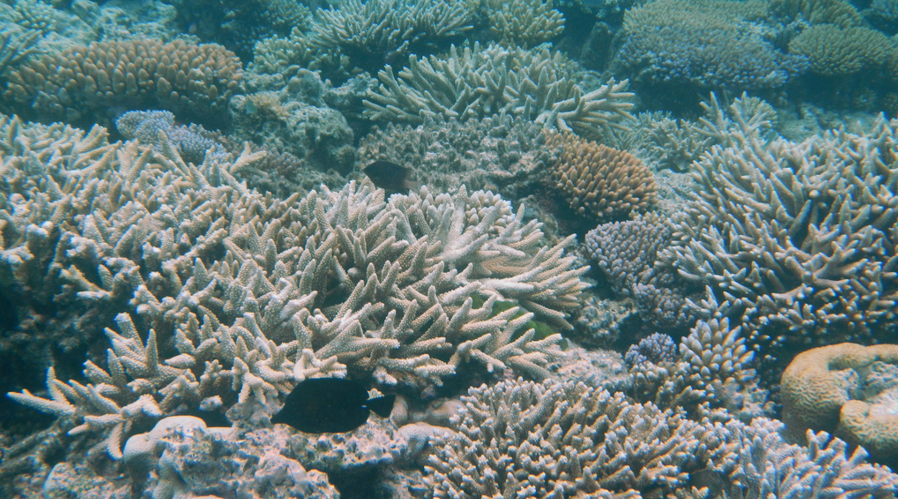Australia's Great Barrier Reef Is In Serious Danger
By:
Large swaths of Australia's delicate coral reefs are looking more and more like the bleached tips of your favorite boy bands from decades past — a pattern scientists say is a sign of climate change's destructive effects on the environment.
According to the National Coral Bleaching Taskforce, about 95 percent of the Great Barrier Reef has experienced severe bleaching.
Coral bleaching occurs when distressed corals expel color-giving algae living in their tissues due to abnormal conditions, such as warmer-than-normal water temperatures, according to the National Oceanic and Atmospheric Administration. Corals can recover, though if the stress is prolonged, they can die.
Scientists say that only four out of 520 reefs they examined have no evidence of bleaching — part of a larger epidemic thought to be the worst on record, the BBC reports.
"This will change the Great Barrier Reef forever," Terry Hughes, head of the country's Research Council Centre of Excellence for Coral Reef Studies told Australia's ABC this week.
 Matt Kieffer/Flickr - flickr.com
Matt Kieffer/Flickr - flickr.com
Though they may not be in the spotlight often, coral are vital to ecosystems both above and below water. As Vox noted, they are home to about 25 percent of marine fish species, sustain food sources for millions of people, and help mitigate destructive storms.
Last year, United Nations Educational Scientific and Cultural Organization decided not to put the Great Barrier Reef on its list of World Heritage sites in danger — a move Australian officials hailed as a validation of their environmental protection efforts.
 Robert Linsdell/Flickr - flickr.com
Robert Linsdell/Flickr - flickr.com
But the recent surveys paint a troubling picture. While bleached coral can recover, some worry that their recovery may be knee-capped by warming waters caused by a combination of man-made climate change and temperature spikes linked to seasonal weather events like El Niño.
Hughes told ABC that he expects about half of the corals surveyed this week to die "in the coming month or so."
"What we're seeing now is unequivocally to do with climate change," Hughes said. "The world has agreed, this is climate change, we're seeing climate change play out across our reefs."
